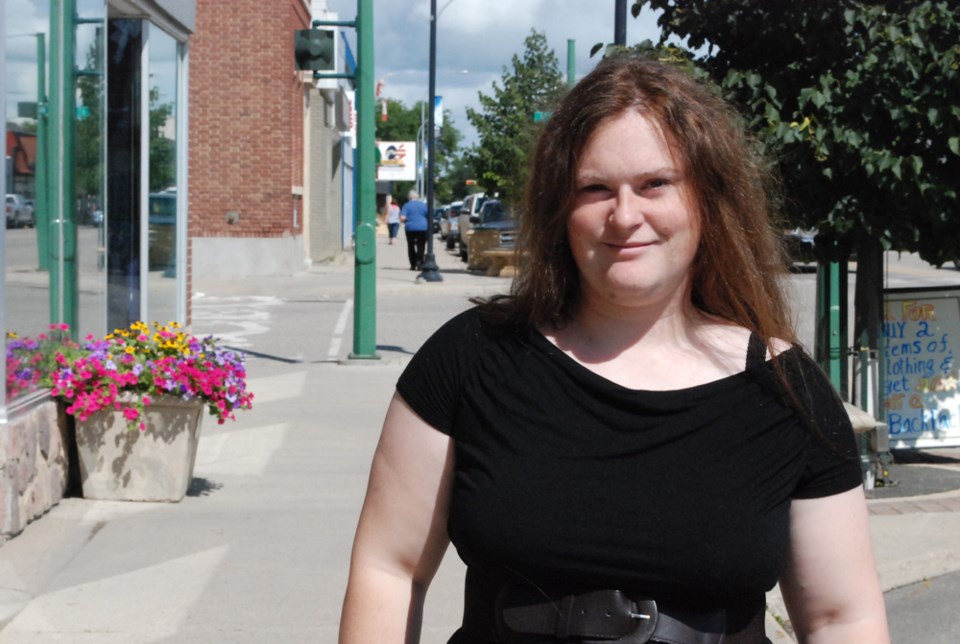Speaking about tolerance at the Humboldt and District Newcomers Centre’s International Day for the Elimination of Racial Discrimination movie night, Jaswuant Singh and Fiseko Musonda had some amazing things to say about tolerance in Canada.
Singh and Musonda both felt that Canadians are very tolerant people, more so than people give them credit for.
Being a Canadian, I am so happy to hear that.
Musonda had this amazing analogy about which religion is the “right” religion and it really can be translated to other aspects of culture that people seem to look sceptically about.
Being a student at a Muslim school in Botswana, she had a very diverse group of friends from Islamic to Christian to Hinduism to Buddhism.
She asked her mother which religion was “right” one day after a debate with her friends.
Her mother, being an academic, answered the question with a question, Musonda laughs.
Knowing around 10 languages, her mother asked her about different ways of saying mother or father in different languages.
Then her mom asked her which one of those many different ways of saying mother or father are correct.
There was her answer.
The same can be said for cultures in Canada.
Every one talks about “Canadian” culture like there is only one true definition of Canadian culture. But really what is Canadian culture?
We are not defined by Tim Hortons or hockey or the ability to handle a good hard winter.
Our identity is so varied.
There is Aboriginal Canadian culture, which is different than Euro-Canadian culture, which is different than Asian-Canadian culture, which is different than newly landed Canadian culture.
Everyone’s story is different.
Even within my own identity I have a different story.
My mom’s side came from England around the turn of the 19th century.
That is a long time to be in Canada and their Canadian identity is ingrained in their mind a little more than those who landed in the last 100 years.
However, being British a lot of Canadian culture stems from British influences so really, I can find my British ancestry anywhere in Canadian culture; for example, political structures and language.
My dad’s side came from Hungary in 1926. My great-grandfather basically gave up the Hungarian culture as soon as he hit Canadian soil because he was now Canadian.
There is no remnants of Hungarian culture in the Canadian identity because Hungarian was not one of the biggest cultural influences on Canadian identity compared to cultures like Ukrainian. I have no Hungarian identity left because of my grandfather’s notion of “becoming” Canadian.
My grandfather did not pass on his language or cultural traditions. My father knew very little about Hungarian traditions, or if he did, he failed to pass that on to his children.
Is that what my grandfather really wanted when he “became” Canadian? His great-grandchildren are now Hungarian in name only.
I say I am fifty per cent English and Hungarian, and I often get corrected that I am 100 per cent Canadian.
To some people that may not bother them. However, this Canadian mosaic should mean that I have something of my Hungarian culture left as part of my identity.
Especially around this area, Ukrainians and Germans are proud to pass on these notions of culture to their children.
The German Heritage Society of Humboldt & District proudly hang on to their German identity. We have a Ukrainian Orthodox Church in town and this past weekend there were two Ukrainian dance recitals in Humboldt and Cudworth.
Right now, we have people that are so focused on assimilating new immigrants that we don’t realize the double standard.
Tolerance really is a two way street and newly landed immigrants shouldn’t come into Canada trying to change it.
Understanding that need to hang on to a culture and pass that on should be something Canadians need to be considerate about as well.
Canada has been taking in immigrants and refugees for hundreds of years which is why our identity is something that is fluid, it has always been changing.
At the time when my dad’s grandparents came to Canada, the majority of immigrants Canada was taking in were those from European countries. That is why we have those strong ties to Christian holidays and Ukrainian, German, even French communities in Saskatchewan.
My great-grandparents came because there were no opportunities in Hungary but an abundance of opportunities in Canada.
Now we are taking in people from Middle Eastern and Asian countries for the same reasons.
Why wouldn’t we have some cultural fluidity when it comes to the different dynamics of people coming in?
Of course they don’t fit that European model that our grandparents and great-grandparents have created but that is the reality of immigration.
If we accept the survival of our European cultures, how can we say other cultures are not allowed to survive within Canadian culture?
And for those of you who think the immigrants are taking over, don’t worry.
Historically, Canada has never been able to take in more immigrants than the total of its population so I’m pretty sure the Canadian identity will survive.



